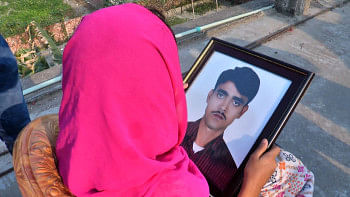Surprising signs you are not moving enough

Movement is crucial to maintain a robust body. The following signs may signal that you are not moving enough:
You are constipated: Your colon moves with movement, making it easier to defecate on schedule. Regular exercise can help you stay regular, especially as you age.
Your joints are stiff: Achy, hard-to-move joints can sometimes be a sign of inflammatory conditions like arthritis or an autoimmune disease. But joints can also stiffen when you don't use them enough. Put them to work so they don't lock up and cause you pain.
You are always out of breath: The less activity you do, the more breathless you get, even during easy daily tasks.
Your mood is altered: Cardio exercises like walking, biking, swimming, or running will boost and steady your mood and even improve your self-esteem.
You feel sluggish and tired most of the time: Feel sluggish and tired most of the time? Exercise helps deliver oxygen and nutrients to your tissues. If you spend most of your time sitting, they are not getting the same amount of fuel they need to keep you going.
Your metabolism is slower: People with "fast" metabolism may just move more -- even if that movement is fidgeting. The more active you are, the more calories you burn each time you move.
Unhealthy sleep cycle: If you are tired of counting sheep at night, get up and get moving during the day. When you keep a regular exercise routine, you fall asleep faster, and you sleep deeper once you drift off.
You forget things: Regular exercise tells your body to make more chemicals called growth factors. They boost blood vessel production in your brain. The more blood that gets to your brain, the better you can think, remember, and make decisions.
High blood pressure: Spending most of your time sitting raises your risk of heart disease. That is partly because you are more likely to have high blood pressure, a big risk factor for heart issues like coronary artery disease and heart attack.
You have prediabetes: When physical activity is a regular part of your life, your body has an easier time keeping your blood glucose under control. Stable blood sugar levels keep you out of the type 2 diabetes danger zone.
Your back hurts: Regular pilates, yoga, and other exercises that use stretching are suitable for building a stronger back.
You are always hungry: Seems like you would be hungry more often if you exercised more, but the opposite is usually true. Aerobic exercise like biking, swimming, walking, and running can actually decrease your appetite because it changes the levels of certain "hunger hormones" in your body.
You have an underlying illness: Studies show the more moderate activity you get, the lower your chance of catching a cold or other germs. When you make exercise a habit, your immune system gets stronger.
Balance your body with adequate movement and exercise.
Source: WebMD

 For all latest news, follow The Daily Star's Google News channel.
For all latest news, follow The Daily Star's Google News channel. 



Comments